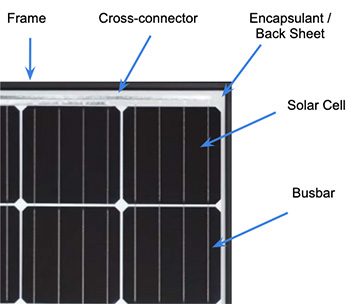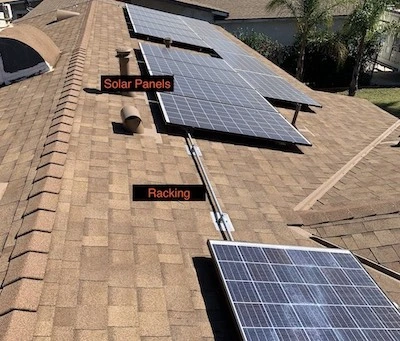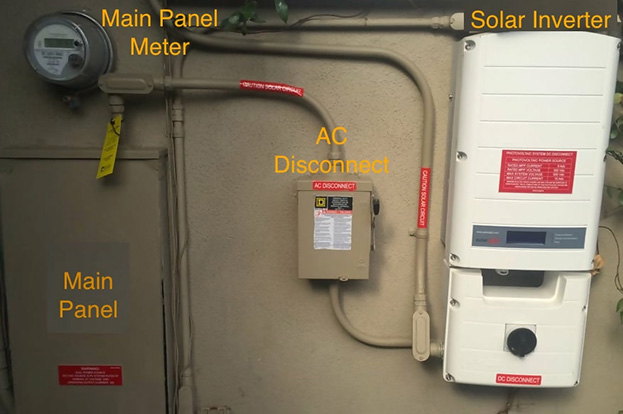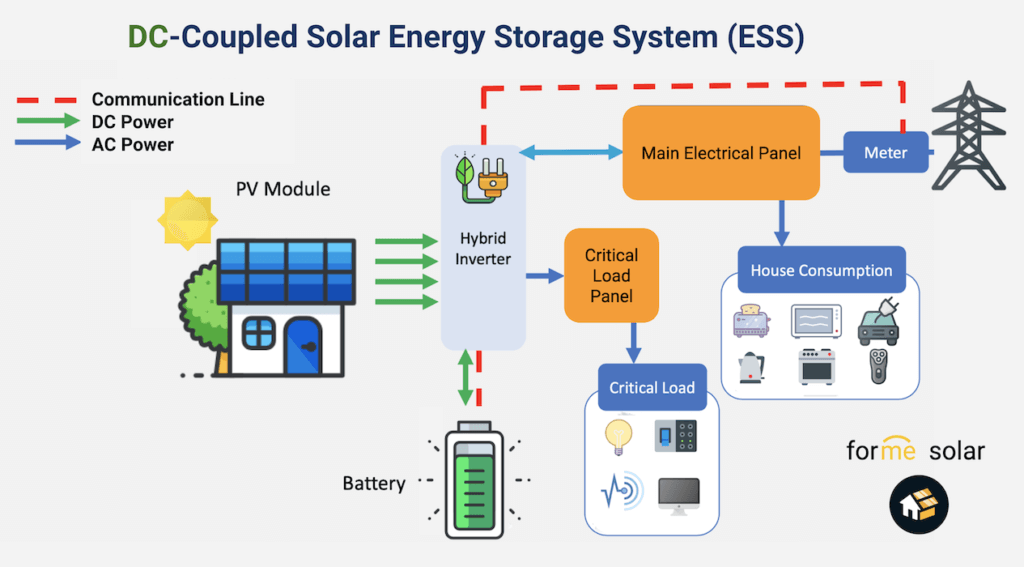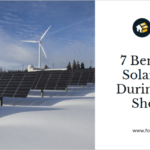
Table of Contents
What Are Solar Panels? Will They Benefit Me?
I never heard someone says, "I couldn't stand how cheap my electricity bill was. I wish it were higher."
Most of the time, people complain about turning on their energy-intensive appliances like their A/C because of the expensive electricity cost.
You might be wondering if this is the case, why aren't more people going solar? Shouldn't we all want to install solar panels if they help reduce our electricity costs?
Here's the deal! Most people love the experience of having solar but hate the intense pressure and stress from a solar installation project. Installing solar on your roof is a project that can require a lot of technical skill, that if done poorly, could create risks like leaking roofs, malfunctioning panels, and even fires.
Utility companies like Southern California Edison (SCE), PG&E (Pacific Gas & Electric), and San Diego Gas & Electric, just to name a few, are consistently increasing the cost they charge for electricity. Ultimately, not going solar will inevitably cost you money! Prevent expensive repairs and damages by going with a solar company you can trust.
What are Solar Panels?
Solar Photovoltaic cells, aka Solar Panels, can provide electricity for residential and commercial buildings by converting energy from the sun into energy used by your everyday household appliances. Sunlight is harnessed by photovoltaic cells in solar panels and transparent photovoltaic glass. These cells work by allowing photons, or particles of light, to knock electrons free from atoms, which generate a flow of electricity. Solar-electric or photovoltaics (PV) technology converts sunlight directly into electricity that can be used for residential and commercial buildings.
If you are confident about what type of solar power system that you are looking for, and are just looking to get a quote, then click here.
What are solar panels made out of?
Solar Panel Key Components
- Encapsulant / Back Sheet
- Solar Cell
- Busbar
- Cross-connector
- Frame
What role do these solar panel components play?
- The Encapsulation / Back Sheet provides a layer of protection for the solar cells from the environment and provides electrical insulation.
- The Frame is made up of aluminum and is necessary to provide structural stability and mount the solar panels.
- The Solar Cells are connected in series via Busbars and Cross-Connectors.
Why Do You Need Solar Panels? What Role do They Play?
Solar panels are one component of an overall solar energy system. They are the critical component for capturing the electricity from the sun. There are tremendous benefits when going solar, and the Federal Investment Tax Credit (ITC) in 2020 makes going solar even more affordable. To properly understand the role that solar panels play, it's crucial to fully understand what solar panels are made of and how they fit into the solar energy system ecosystem.
It can help you save money on utility bills
Solar panels help offset the amount of electricity you need to purchase from Edison, and puts less pressure on our heavily overloaded electrical grid. It also helps protect the environment by using a renewable energy source. When the sun is shining, it means that less carbon fuel is burned to generate the energy we need at home.
Solar panels increase home value
Every homeowner is concerned with their property's home value. From the home improvement renovations made to the fixtures that are put inside the home, the resale value of your home is always a consideration. Homes with solar have been found to not only sell faster but also for more. Wouldn't you pay more for a home that costs less to maintain and operate?
Are Solar Panels Different Than a Solar Energy System?
Solar panels are just one component of a solar energy system. There are other essential parts to a solar energy system apart from solar panels. To safely produce your power, and gain independence from your utility company, you need a complete solar power system. The essential components:
- Solar panels, to capture energy from the sun
- An inverter, to convert that energy to a form that can power our devices
- Racking, the foundation on which you attach your system
Solar Panels and Solar Batteries
By combining solar panels with a solar battery, you can truly unlock all of the expectations that homeowners have about going solar. By adding a battery storage solution with your solar panels, you can store the energy produced by your solar panels. So even during the event of an outage, or if you've been switched to Time-of-Use billing, a solar battery will allow you to store electricity when you least need it and use it when you most need it.
The relationship between solar panels and solar batteries should be understood if you're considering adding a battery to your solar energy system. A solar energy system that includes a battery is called an Energy Storage System (ESS). An ESS includes a solar battery, and power processing units (inverter).
Batteries Pack to store the energy that is captured by the solar panels. Commonly known solar batteries are the Tesla Powerwall, Enphase Encharge, LG Chem, and Q.HOME.
Charge controller - Is also commonly referred to as a battery regulator. It sounds exactly like it does; it helps control the rate at which batteries charge from solar. Its primary role is to prevent overcharging and limits the rate at which electric current is drawn. This improves the performance of your battery and reduces safety risks.
Solar Inverters - An inverter is needed to change the energy captured by the solar panels (DC energy) to the power that can be stored by your solar battery and used by your household devices (AC energy).
How Much Do Solar Panels Cost?
There are different types of solar panels. They will range from the brand, wattage, and even color. These variations will have substantial differences, but most solar panels will start at roughly $250 per panel. A solar panel installed by a licensed electrician will set you back around $1,000 - $1,500 per panel before tax incentives. If you are more of a do-it-yourself homeowner, you can buy solar panels and install them yourself. It often requires drilling holes in your roof, bending conduit, and electrical wiring.
What Solar Panel Incentives Are Currently Available?
You may have heard that the government is subsidizing the cost of going solar. There are varying incentives across local and state municipalities and a federal solar tax credit that make installing solar panels on your roof extremely affordable. Working with a solar company that knows your local and state incentives can help you maximize your savings when going solar. For most homeowners in California, the Federal Tax Credit is the primary solar incentive that most homeowners are eligible for.
While this tax credit faces a gradual extinction, the 26% Federal Investment Tax Credit (ITC) remains until the end of 2020. Starting from 2021, the Federal ITC, also known as the Solar Tax Credit, will reduce to 22%. This includes the cost for labor and on-site preparation like roof repair. For homeowners looking to get a new roof, adding solar panels to the project would enable them to have the cheapest reroof.
How Long do Solar Panels Last?
Solar panels are typically warrantied for 25 years. That means that they are built and installed to endure harsh and unpredictable weather conditions. Even though they are typically guaranteed to last for 25 years, they have been found to last for more than 40 years. After 25 years, the solar panels on your roof should still produce 75-80% of it's original performance. This means that even with little maintenance your solar panels will last for decades, and will continue to perform at a high level.
Conclusion
Getting solar energy for your home is the key to reducing your electricity costs. If left unchecked, your electricity bill can skyrocket, especially during the summer. Looking into whether solar may be right for your home could be the first step towards saving you thousands in the future. If you think that solar energy could benefit your home, contact Forme Solar today. Our skilled, certified solar technicians can properly size and install solar panels for your home. While providing you with outstanding performance that ensures your home is free of roof leaks.
Call Forme Solar, your San Diego, Riverside, Los Angeles, San Bernardino, and Orange County solar panel specialists, now at 714-694-2262, to make an appointment with our friendly and knowledgeable staff.


